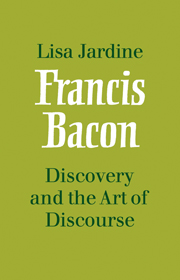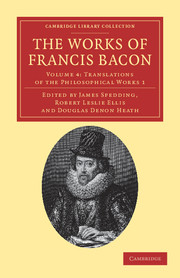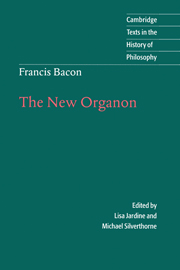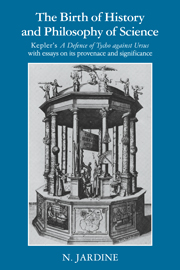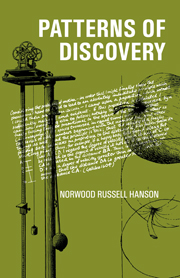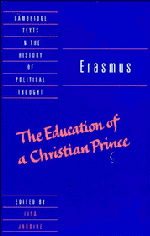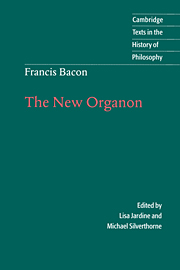Francis Bacon: Discovery and the Art of Discourse
By modern standards Bacon's writings are striking in their range and diversity, and they are too often considered a separate specialist concerns in isolation from each other. Dr Jardine finds a unifying principle in Bacon's preoccupation with 'method', the evaluation and organisation of information as a procedure of investigation or of presentation. She shows how such an interpretation makes consistent (and often surprising) sense of the whole corpus of Bacon's writings: how the familiar but misunderstood inductive method for natural science relations to the more information strategies of argument in his historical, ethical, political and literary work. There is a substantial and valuable study of the intellectual Renaissance background from which Bacon emerged and against which he reacted. Through a series of details comparisons and contrasts we are led to appreciate the true originality and ingenuity of Bacon's own views and also to discount the more superficial resemblances between them and later developments in the philosophy of science.
Product details
No date availablePaperback
9780521109086
276 pages
216 × 140 × 16 mm
0.35kg
Table of Contents
- Preface
- Introduction
- 1. Dialectic and method in the sixteenth century
- 2. An English dialectical controversy
- 3. Bacon's response to the dialectical tradition
- 4. Bacon's theory of knowledge
- 5. The goal of the interpretation of nature
- 6. The interpretation of nature
- 7. Analogy and generalisation in natural philosophy
- 8. analogy and generalisation in ethics and civics
- 9. Methods of communication
- 10. parable
- 11. Exempla
- 12. Bacon's view of rhetoric
- 13. The method of Bacon's essays
- Appendix, Bibliography
- Index.

